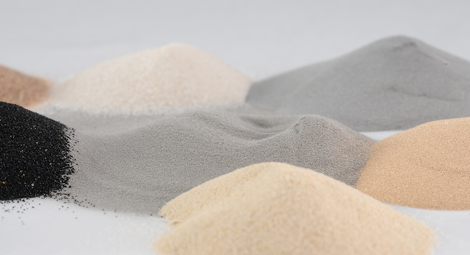
The new materials properties offer exciting new possibilities for companies looking to use industrial scale 3D printing
Fast on the tracks of launching its Innovent set-up for customers interested in developing their own 3D printing materials for product development, ExOne has launched six new materials with industrial properties.
From super tough Tungsten Carbide to corrosion resistant Stainless Steel, the new materials are ready to be used in its M-Flex printers, as well as for those looking to experiment using the aforementioned Innovent system.
“Utilisation of these materials in ExOne’s machines will allow our customers to advance our binder jetting applications with their technologies,” said Rick Lucas, ExOne’s chief technology officer.
“The diversity of this group of printable materials demonstrates the breadth of industries that ExOne touches, including the aerospace, automotive, energy, foundry and medical markets – broadening our addressable market.”
The new materials include:
Cobalt-Chrome (Co-Cr):
Traditionally used in various fields where high wear-resistance is needed, including aerospace, cutlery, bearings and blades, Cobalt-Chrome alloy has recently received more attention for medical applications due to excellent resistant properties, high melting points and incredible strength at high temperatures.
IN Alloy 718: Commonly used for components in the aerospace, chemical and energy markets, with applications including gas turbine blades, filtration and separation, heat exchanger and molding processes, the alloy is desirable due to its oxidation and corrosion-resistant qualities, able to retain its strength even when subjected to extreme environments.
Iron-Chrome-Aluminum (FeCrAl): Offering superior properties as compared to the other alloys, Iron-Chrome-Aluminum alloys are widely used in electrical furnace, electrical oven, home appliance, electrical heater and infrared settings.
17-4 Stainless Steel and 316 Stainless Steel: 17-4 and 316 Stainless Steel both have broad applications in the automotive, medical and general industry markets, used to produce a range of products, including surgical tools, metallic filters, pumps, impellers and structural automotive parts. Both grades are known for their excellent mechanical and corrosion resistance properties and cost-effectiveness.
Tungsten Carbide (WC): One of the hardest carbides with a melting point of 2770°C, Tungsten Carbide is mainly used in the production of high wear-resistant abrasives, carbide cutting tools (knives, drills and circular saws), and milling and turning tools used by the metalworking, woodworking, mining, petroleum and construction industries.
The materials are a result of ExOne’s expanding customer development program, qualifying materials for production printing through customer partnerships at one of its research and development centers or in its eight worldwide production service centers.
Other materials already available include 420 Stainless Steel infiltrated with Bronze; 316 Stainless Steel infiltrated with Bronze; Iron infiltrated with Bronze; IN Alloy 625; Bronze; Bonded Tungsten and Glass.






